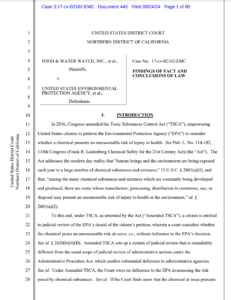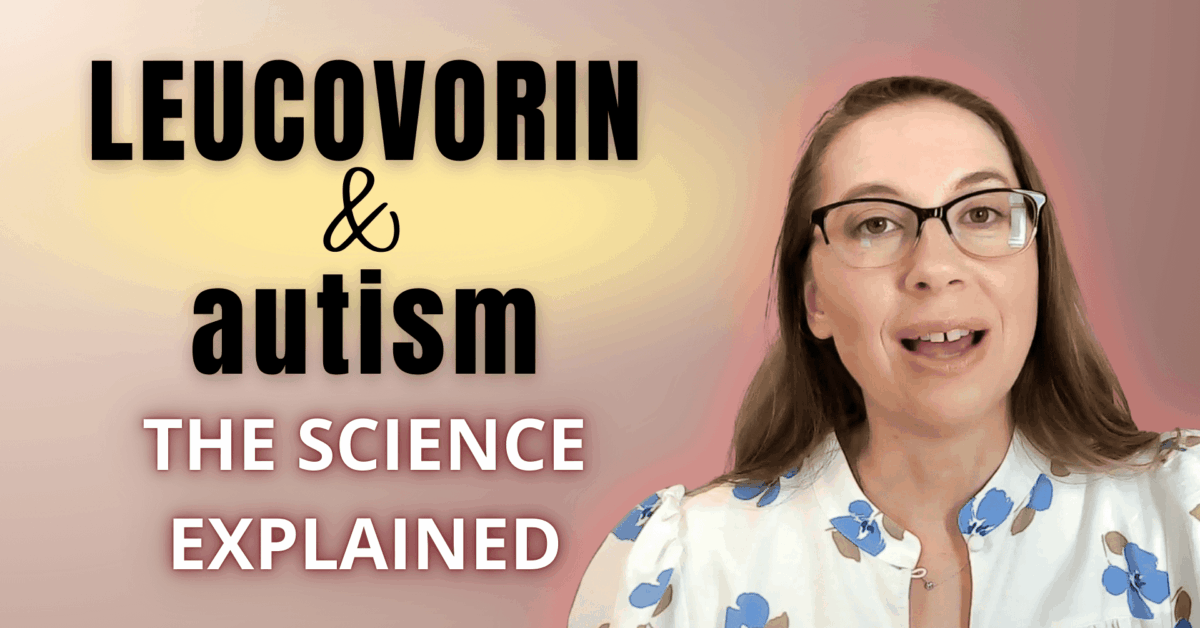Did you know that something you drink every day could be lowering your IQ? Fluoride is in 70 percent of US tap water and a recent court ruling has rocked the scientific world by suggesting it could harm our children’s brains.
Today, we’re diving into a shocking court ruling that could change the way we think about fluoride in our drinking water, if you haven’t already.
You’ve probably heard that fluoride is good for your teeth, right? Well, a recent US court case just found that the fluoride levels in most of our water could be putting children’s brains at risk. Let’s unpack what’s really going on and what this means for all of us.
Background
Here’s the first page of the court ruling. It’s 80 pages long, so let me summarize things for you.

Fluoride has been added to drinking water in the United States for decades. The reason? It’s supposed to help prevent tooth decay. Since the 1940s, cities have been fluorinating their water, and it’s been considered one of the greatest public health achievements.
Food and Water Watch vs EPA
But, what if the benefits have come with serious downsides? In 2017, a group of organizations, including Food and Water Watch, sued the EPA (Environmental Protection Agency) in the US, arguing that fluorination at current levels could be harmful to public health, particularly for children. The court case revolved around the Toxic Substances Control Act, which allows citizens to challenge the EPA’s decisions if there is evidence of a chemical posing an unreasonable risk.
The ruling
And here’s where things get wild. The court found there’s compelling evidence that fluoride in water might be causing cognitive damage.
Remember, this is all a court case. The big concern? Lowered IQ in children.
The basis
Multiple studies, including those conducted by the National Toxicology Program, show that fluoride exposure, especially during pregnancy and early childhood, can lead to significant decreases in IQ. One study found that for every 0.28 milligrams per liter of fluoride in a pregnant woman’s urine, her child’s IQ could drop by about one point. Considering that fluoride levels in the US are around, on average, 0.7 milligrams per liter in drinking water, this is a real concern.
You might have heard about the fluoride and the controversy and thought, ‘Oh, it’s just kind of those fringe people.’ It’s not.
The response
How did the EPA respond? Despite this evidence, the EPA initially dismissed the petition, stating that the risks weren’t conclusive. But the courts were not having it. They ruled that the evidence from studies, including 72 human studies, was strong enough to require action.
The court didn’t decide exactly what should be done but told the EPA they must respond with some form of regulatory action.
Why does this matter?
Now, this court ruling doesn’t mean that fluoride is going to be banned tomorrow, but it does mean that the EPA can’t ignore the risk anymore. It’s great to live in the US, right?
The term they used was unreasonable risk. In other words, fluoride might not be safe, especially for vulnerable populations like pregnant women and young children. And that’s what has everyone talking.
What happens now?
The EPA must go back and reconsider its stance on fluoride. This could lead to a variety of outcomes, especially with the new administration like:
- Maybe lowering the allowed levels of fluoride in water is one option.
- Maybe adding more public health warnings to tap water.
- Maybe a complete overhaul of water fluoridation practices.
It’ll be interesting to see what RFK Jr. can potentially do with fluoridation in the water. The ball is in the EPA’s court. But the pressure is on, for sure.
What’s really at stake here?
We trust public health agencies to protect us. Cases like this show that science is always evolving. Just because something was considered safe decades ago doesn’t mean it holds up to new research.
In this case, the science is catching up and it’s starting to look like we may need to rethink fluoride in our water. And many people knew this decades ago.
Fluoride and autism
Knowing all that you know now about the court ruling on fluoride, what if something in your drinking water could be linked to autism?
Research suggests fluoride might play a bigger role than we ever thought.
In 2024, a study published in the JAMA Network Open found that higher fluoride levels in pregnant women were linked to neurobehavioral issues in their children. Even more concerning, just a small increase in fluoride exposure was associated with almost a 19 percent increase in autism-related behaviors in their kids.
Now that’s a big deal, but there’s more.
In 2019, a review suggested that fluoride could contribute to autism through oxidative stress and inflammation. Those are two big things we know that can affect brain development. I talk about oxidative stress and inflammation in my detox and vitamin B12 videos, so certainly go check them out.
We are a global audience here. Countries with high fluoride levels have reported higher rates of autism too. This isn’t just a coincidence, it’s starting to spark major debate based in science because now we have these research studies that show there’s a concern. It’s always good to use science to guide these decisions and win legal cases.
Now, to be fair, many of these studies are observational, meaning they can’t definitively prove that fluoride causes autism. Some have been criticized for potential biases – too small sample size, not enough sampling, etc.
But, here’s the thing. We still don’t have enough high-quality studies to say for sure. Major health organizations claim fluoride is safe, but with these new legal findings, it’s clear that it’s not.
What does this mean for you and your family?
Trust your intuition. I wanted to share this legal case because so often when we’re working to get our children healthy, we find ourselves going against mainstream, and many people may question “What are you doing? Why are you doing that? That doesn’t make sense. That’s not what my doctor said.”
You’re going to be doing your own research. You’re going to be coming up with different answers than many people in the mainstream who don’t have access to quality, cutting-edge scientific information. And people may, probably will, question you for searching and researching.
But you have to stand strong and unwavering in your research and your decisions.
This fluoride case shows how, for years, people spoke out about fluoride’s risk, only to be doubted and dismissed. Yet, they were right. Think about how many pregnant women and children were exposed to high levels of fluoride. I know, I drank water with fluoride in it even though the science wasn’t fully there to support it.
As you work to improve your child’s health, you may face opposition. But don’t stop. It might take years, and even court cases for others to realize that you were right all along. Trust your intuition, do quality research, and surround yourself with insightful people who will ask you questions and make sure you’ve done your research completely.
In the meantime
Now you might be wondering, what can I do in the meantime? Well, there are water filters available that can reduce fluoride levels in your home, and staying informed is key. Reach out to your local water authority to learn more about fluoride levels in your area and what actions are being taken in response to this new ruling.
Confused by all the information about autism? I’ve got you. Click the link to see how we can work together. Let me break down the science and provide you with clear, actionable steps to make your path forward.
Conclusion
There’s still a lot of controversy around fluoride. Some experts argue it’s essential for dental health. You could just use what’s in the toothpaste. While others believe that the risks outweigh the benefits.
This court ruling has certainly shaken things up and we could be on the verge of major changes in how we manage fluoride in the US. This case is a reminder that we need to keep questioning what goes into our bodies and demand transparency from public health organizations. As science evolves, so too should our policies. It’s exciting and a little bit scary, but ultimately, it’s about making sure we’re all safe.




